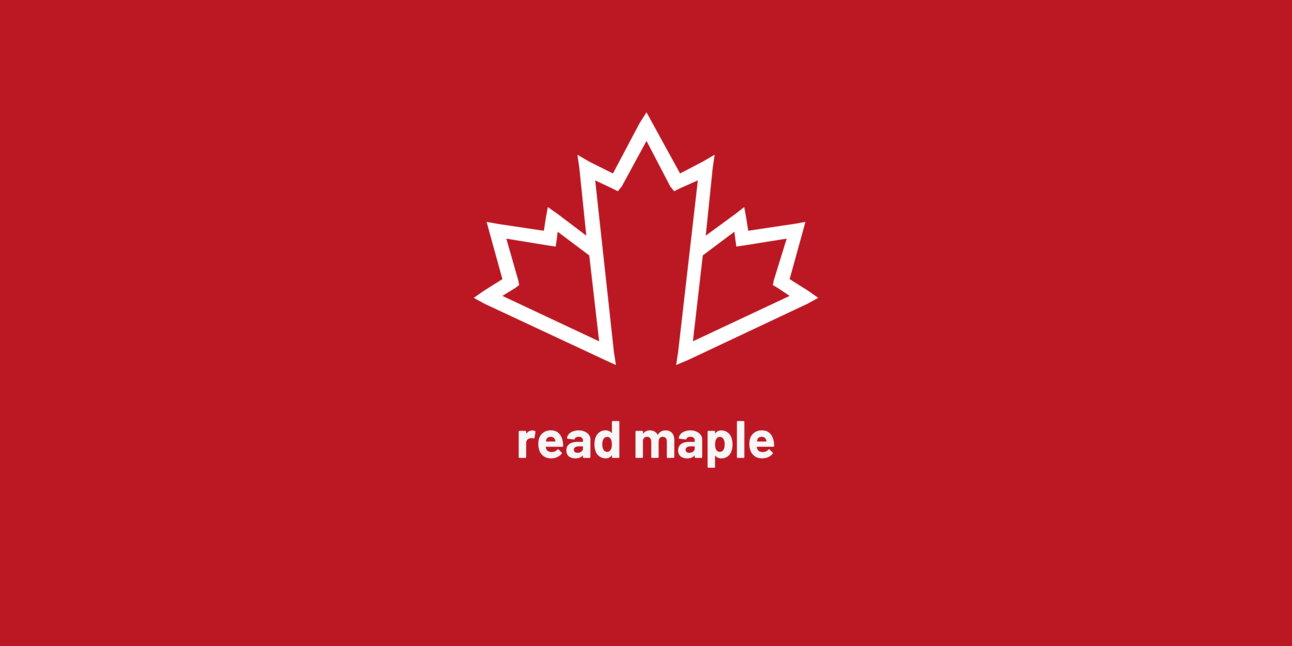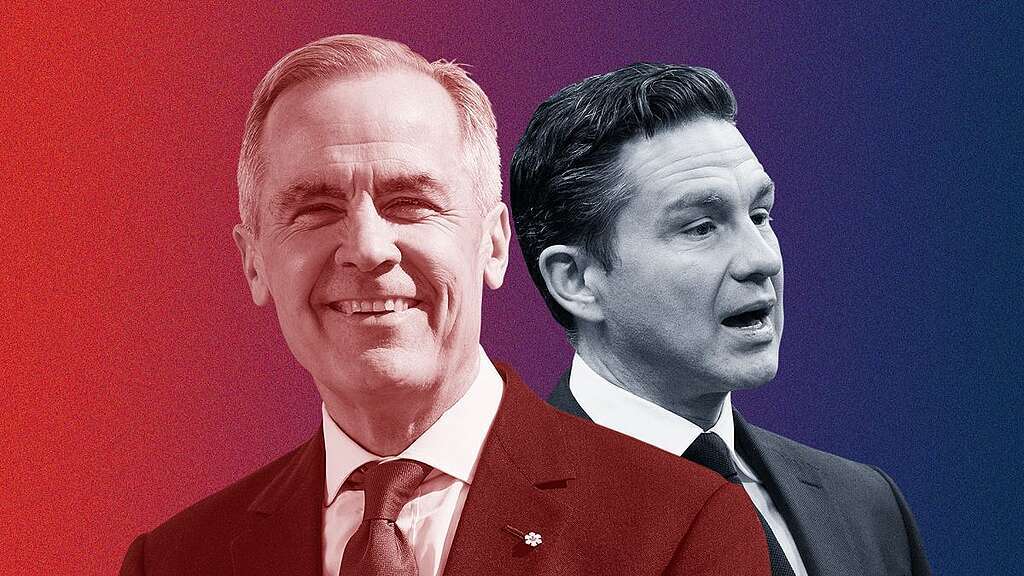- Read Maple
- Posts
- Unlikely allies in Parliament and the U.S. bombs Iran
Unlikely allies in Parliament and the U.S. bombs Iran


🤝 Liberals find a partner… for now
Eyebrows were raised in the House of Commons last week, as despite challenges from opposing parties, the Liberal Party of Canada relied on the support of the Conservative Party to push Bill C-5 through on Friday evening.
Bill C-5, known as the “One Canadian Economy” act, was split into two votes on Friday: the first part being to break down interprovincial trade barriers in Canada. That vote passed nearly unanimously, with only Green Party Leader, Elizabeth May, voting against it.
The second part of the bill, also referred to as the “Major Projects” legislation, gives the government sweeping new powers to approve major projects. PM Carney told reporters after the vote that the major projects powers in the bill are “enabling legislation” that needed to be passed quickly to begin the process of considering and approving “nation-building projects.” This vote only had the support of the Conservative Party, which was enough to pass the bill.
🤔 What are the other parties saying?
Green Party’s Elizabeth May took a jab, saying “It appears to me, and it remains to be seen, that (Prime Minister) Carney’s new majority coalition is Liberal-Conservative, delivering Pierre Poilievre’s policies with a more friendly face.”
The Bloc Québécois warned of a “new cross-party alliance;”
The NDP accused the Liberal Party and Conservative Party of joining forces to “steamroll” over environmental protections and Indigenous rights.
What about the Liberals?
“I’m very glad they (the Conservatives) are coming to the game and playing a constructive role. It’s been a very long time since they’ve done that.” - Liberal MP and former House Speaker, Greg Fergus. 😬
Former Conservative staffers express worry
With Mark Carney pulling the Liberals away from the left and closer to the centre, the Conservative Party has to make a new case to Canadians on why they’re still the top alternative.
Former Conservative strategist, Tim Powers, says Mark Carney is governing like a Progressive Conservative. “Where’s your opportunity?”
Is this a Conservative Policy?
Pierre Poilievre’s platform during the election campaign promised a similar policy, but it was tied in with promises that included scrapping the industrial carbon price and repealing the Liberals’ contentious Impact Assessment Act. Bill C-5 does not go that far, and Pierre Poilievre (from outside the House of Commons, mind you) still doesn’t completely approve.
Mark Carney has pushed this bill as Canada’s core economic response to U.S. tariffs, and it was fast-tracked through Parliament in two weeks - introduced on June 6th and passed after only 8 hours of committee study.
The Liberals and Conservatives both deny that there’s any “coalition” or even talks of one. The fact remains, as the two largest parties in Canada, that they’ll continue jockeying to maintain power, and the Conservatives will look for the first opportunity to swoop in if the Liberal minority government begins to falter or tumble in public polls. The Liberals will continue to look for support where they can get it to pass bills, sitting with 169 seats in the House of Commons, 3 short of a majority.
On another note, the closer the Liberals pull to the centre, the better opportunity that opens up for the left party, the NDP, to reclaim some seats it has bled over the last decade. The NDP had 44 seats coming out of the 2015 Federal Election, and 10 years later, they sit in the House of Commons with only 7 seats and don’t have official party status.
💻 Largest Data Breach Ever?
Over 16 billion login credentials have been leaked in what is believed to be one of the largest data breaches ever.
The exposed datasets include login information from major platforms including Apple, Google, Facebook, Telegram and other government services.
What to do?
Immediately change passwords on your accounts.
Enable multi-factor authentication wherever available (I know, we’re a lot alike and usually skipped this step when presented with it, but it’s probably a good idea to stop doing that…).
Want to check if your information tied to a particular email address comes up in any data breaches? You can use this website to regularly monitor.
🇨🇦 Canadian Headlines
✈️ Cheaper domestic flights? Canada’s competition bureau recommends a new class of airline that operates only in Canada but can have owners from outside its borders.
The current foreign ownership cap sits at 49%. Additionally, no more than 25% of a carrier can be owned by any one foreign entity, and the Competition Bureau is proposing raising that to nearly half.
Why these recommendations? Promoting competition is the main driving factor. The arguments made include customers dissatisfaction with fares, flight options and service quality.
Market concentration has hurt the Canadian market, as Air Canada and WestJet together account for 50-67% of all domestic passengers at major airports. Four low-cost carriers have disappeared in just 20 months.
Many Canadians report International flights are often cheaper than flights within Canada.
The report also recommends shifting the financial burden of airport maintenance away from passengers, thus lowering ticket prices and allowing more consumers to book flights on budget carriers.
🚨No biking and planned exit strategies. Jagmeet Singh’s last year and a half as a member of the House of Commons was radically different than it was in the years prior, as the former NDP leader was under RCMP protection due to imminent danger on his life.
Jagmeet Singh was allegedly being tracked by an agent with ties to a criminal syndicate accused of conducting violence in Canada on behalf of the Indian government.
The agent reportedly had details of Singh’s travel, daily routine and family.
Security restrictions ended Singh’s bike rides to Parliament Hill and he now required extensive planning for public appearances with mapped exit strategies.
Singh had considered stepping away from politics after receiving the warning but was determined to not be “bullied” out of his public role.
Pierre Poilievre faces a leadership review. Remember that part about Poilievre not being entirely on board with Bill C-5 from outside the House of Commons? Well, the Conservative Party will hold its national convention in Calgary from January 29-31, 2026, where members will vote via secret ballot on Poilievre’s leadership.
While this is a routine post-election review, this comes off Pierre Poilievre losing his seat in a riding he’s run in for two decades as the party’s leader.
With Pierre Poilievre’s polling numbers declining at a rapid rate following the election, some Conservatives believe they’d be better off with a new leader. Mark Carney currently holds a 26-point lead over Pierre Poilievre in opinion polls on who the preferred Prime Minister is, with PM Carney having the advantage amongst young people and men - a demographic that leaned heavily towards Poilievre leading up to the election.
EU Defence Partnership. PM Carney will be in Brussels today to sign a landmark EU-Canada Security and Defence Partnership Agreement. This pact is one of the EU’s most expansive with a non-member of the union and will allow for joint action on crisis response, military mobility, maritime and cyber security and access to the €150-billion ReArm Europe defence procurement program.
The pact comes as PM Carney has insisted on Canada becoming less reliant on the United States for defence, as he signs agreements with more “reliable” partners and looks to beef up Canada’s own military.
Canada says “no” to big tech. Despite mounting pressure to pause the Digital Services Tax set to take effect on June 30th, Finance Minister Champagne has said Canada will be going ahead with the tax.
The tax has been a sticking point during trade discussions with the U.S.
The digital services tax will affect companies like Amazon, Google, Meta, Uber and Airbnb with a 3% tax on revenue from Canadian users.
The tax applies retroactively, leaving U.S. firms with a $2-billion USD bill due at the end of the month.

🇮🇷 Bombings and “Peace”
On Saturday night, President Trump gleefully posted to his Truth Social account and reshared on Twitter/X, that the United States had successfully bombed three nuclear sites in Iran. In the same post, he added that “now is the time for Peace,” because when a country gets bombed, that’s exactly what they want next.
The New York Times headline on their website following the news simply read, “U.S. Enters War Against Iran,” and the reaction is likely to be extremely split in the United States.
According to Reuters, on Thursday, Vice President JD Vance had pushed back against Israeli officials during a phone call described as “intense,” saying the United States should not be directly involved in the war and suggesting that the Israelis were going to drag the country into it, according to a security source. Another source in the room claims the Vice President did not say this on a call, as the administration and supporters of the administration become increasingly frustrated and split regarding the conflict and what action to take.
Israel did not want to wait two weeks for Iran to reach a deal and felt President Trump was lacking urgency at a time when there wasn’t room to wait that long.
President Trump himself had campaigned on not getting the United States involved in conflicts in the Middle East, and VP Vance has frequently criticized past U.S. involvement in conflicts, including Iraq and Afghanistan.
On Saturday night, following the bombings, President Trump said the U.S. “obliterated” nuclear sites in Iran and urged them to make peace or face more attacks.
Fallout: On Sunday, Iran’s Parliament approved a motion to close the Strait of Hormuz. Due to the strait’s importance for the flow of oil, the closure could have serious ramifications for the global and U.S. economy following the U.S. attacks on Saturday. U.S. Secretary of State Marco Rubio, not able to hide the USA’s regret and needing to clean up some type of mess, actually called China to have them talk Iran out of closing the strait due to their need for oil. 20% of the world’s oil flows through the strait and China is Iran’s largest oil customer.
Also on Sunday, Trump’s top military official walked back Trump’s “obliterated” comment, saying it was “way too early” to determine what type of damage was done.
Reaction: China condemned the U.S. attack, stating they were deeply concerned at the risk of the conflict getting out of control and that a ceasefire should be agreed upon immediately with hostilities ending. United Nations Secretary-General Guterres warned that the U.S. attack represents a dangerous escalation that poses threats to global peace and security. The EU’s chief diplomat urged all parties to step back and prevent further escalation. More reaction flowed through on Sunday as many parties around the world urged all involved to step away from further escalation and work on ending the conflict.
🏦 Numbers
Canadian retail sales plunged 1.1% in May, the largest decline of the year, following volatility in auto purchases after consumers rushed to buy cars ahead of tariff-driven price increases.
This reversed April’s 0.3% gain, which was, again, primarily driven by vehicle sales. Excluding autos, sales fell 0.3% in April, marking a second consecutive monthly drop.
Statistics Canada reports that 36% of retailers were affected by the ongoing trade tensions in April, with common factors being price increases, lowered demand or supply chain issues.
Economists suggest a second-quarter stall as consumers remain cautious about spending with the ongoing trade wars and tariffs.
Americans still want Canadian business. With the summer tourism season heating up, Canadians continue to choose to boycott travel to the U.S. as April 2025 travel dropped 35.2% compared to the same month in 2024 and air travel fell nearly 20%. Nearly two-thirds of Canadians see the U.S. as “unfriendly” or an “enemy” and the same poll found 61% boycotting American companies.
85% of Canadians are living paycheque-to-paycheque in 2025. This is an increase from 60% reported previously, according to a new H&R Block survey. Federal minimum wage increased by just 45 cents on April 1, 2025, a 2.4% bump. With food, rent, and utilities climbing quicker than pay increases, 74% of Canadians are depleting their savings.
Canada is facing a “productivity emergency” that impacts workers’ purchasing power and has led to Canada's government to rethinking immigration’s impact, and increasing business investment focus.
🤖 Rogue AI
Elon Musk repeatedly chastised his own AI chatbot, Grok, this week for providing responses that don’t align with Musk’s political views, and, as Musk put it, has been “manipulated by leftist indoctrination.”
Elon Musk initially purchased Twitter to make it the most “free and open” space, protecting free speech. This included launching xAI, an AI chatbot intended to create “maximum truth-seeking” and wouldn’t be “woke.”
Elon Musk complained when Grok cited data showing right-wing violence has been more frequent than left-wing violence since 2016.
Despite accusations of left-leaning bias, xAI admitted to manipulating Grok to spread white supremacist propaganda about “white genocide,” with an employee making unauthorized modifications to force specific political replies.
On Friday, Musk tweeted that Grok would be “updated” this week, as he can’t quite handle his own AI citing factual information and not spewing his own preferred narratives.
💭 ICYMI
Robinhood’s co-founder, Baiju Bhatt, is making a big shift, entering the world of deep tech aerospace after his past in Fintech.
He’s launching Aetherflux, a space-based solar power company. Instead of using massive satellites, the company will use smaller satellites with fibre lasers to convert solar power into focused light beamed to ground receivers.
The first demonstration satellite will launch in 2026, initially targeting military applications with Department of Defence funding.
If the technology works the way intended, it could revolutionize energy distribution by providing solar power day and night anywhere on Earth.
JD Vance joined Bluesky on Wednesday, timing his arrival with a Supreme Court ruling that upheld Tennessee’s ban on gender-affirming care for minors by a 6-3 vote.
JD Vance posted a screenshot of Justice Thomas’ concurring opinion, and then claimed he’d “been told this app has become the place to go for common sense political discussion.”
Common sense did prevail, as he quickly became the most blocked user on Bluesky, with over 111,000 users blocking him - the highest total since the app launched.
Too reliant on the U.S.? No, it’s not just Canada. European leaders worry they’re too reliant on U.S. tech, pushing for homegrown alternatives in cloud, AI, and semiconductors. As I learned in my first year business classes, diversification is key.
😊 Not everything needs to be serious…
Not everything needs to be serious and dreary. We can smile at the news too, and one of my goals is to end every edition with a story that you wouldn’t ordinarily see in the news, but that will hopefully make you smile.
Sometimes I joke to my dog that he’s going to need to get a job and do some work to pay for some of his bills around here - these two dogs are doing work just for the fun of it and making sure the airplanes that take off into the sky remain safe. How? By chasing the birds!